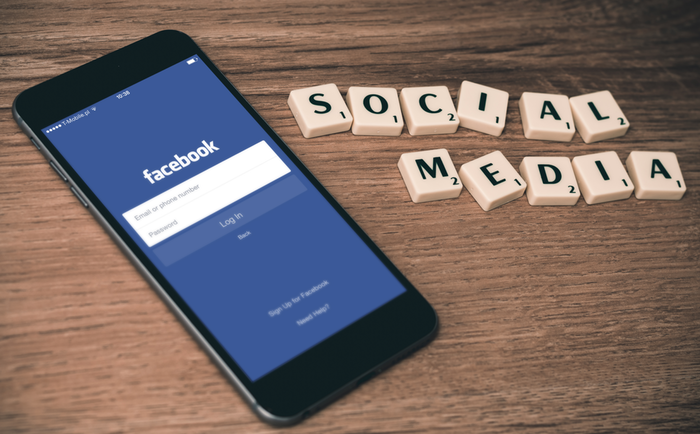
It wasn’t so long ago that modern marketers were declaring the death of traditional marketing methods. Social media came along and all of a sudden people wanted to be engaged and connected to brands, rather than watching ads on TV. And people just wanted content – lots and lots of content – whatever that is. Brands started putting significant amounts of money into creating conversations with people because people love having chats with companies that make baked beans. And, of course, advertising companies pumped millions into banner ads on websites, despite that fact that over half of them were only ever displayed to bots.
Unsurprisingly, it turns out that the traditional marketing methods devised over more than a century are still relevant. And while there are some incredibly talented and clever companies working with online marketing and digital ‘content,’ there is also a heck of a lot of people out there who don’t seem to have a clue what they are doing. Sure, they might be great at SEO or posting pictures of cute cats doing funny things on social media, but marketing of any kind is, ultimately, about driving sales. And the simple truth is that, on the whole, online marketing is massively failing in this regard.
With this in mind, we thought we would go through some of the online and offline marketing techniques that many businesses are using today. And, we’re going to explore whether or not they will work for your company. Let’s take a look at and kick things off with digital marketing – the up and coming challenger to more traditional methods.
SEO
The first step you will take in online marketing is to look at search engine optimization – or SEO. It’s basically to do with being visible online, and driving traffic to your website – and it is important to get it right. SEO is seen as something of a mystical art, but the truth is that it is actually quite straightforward – just incredibly time-consuming, and a little technical.
It’s for this reason that many website owners prefer to pass on duties to third party SEO firms or online marketing companies, and also experience varying results. The trouble is, traffic can be manipulated, by fair means or foul. And if you land yourself with an SEO specialist who enjoys the darker side of search manipulation – known as ‘black hat‘ – then you will eventually pay the penalty.
SEM
Search engine marketing – or SEM – is a little more similar to traditional marketing in that you pay for it directly. In a similar manner that you would pay for an amount of flyers, say, you pay for a volume of ad displays online. SEM results in paid traffic, while SEO is for attracting what is termed as ‘organic’ traffic. There is a multitude of different options in SEM, from banner ads to Pay per Click (or PPC) from services like Google’s Adwords. And, as any digital marketer will tell you, SEM is just as important for attracting traffic to your site as SEO.
However, as we mentioned in the intro, SEM is just as rife with hooky behaviour as SEO. There is something of a scandal about display ad banners at the moment, and there are some major players in the advertising world who are starting to feel a little uneasy as their biggest clients cotton on to what is, actually, fraud on a massive scale. Undoubtedly, SEM can work for your business, but when you consider the whole industry has been taken for a ride, it’s difficult to trust anyone with 100 percent confidence.
CRO
So, if you set up your SEO for success, you should have a whole bunch of visitors coming to your website, right now. But what happens if they don’t stick around for too long, or never seem to buy anything? The trouble with SEO is that it doesn’t necessarily result in your company making any money – a million visitors are just as good as none if they don’t buy anything. And, if they aren’t buying anything, the answer lies in something called conversion rate optimization – or CRO. CRO is the process of refining your website to make people do the things that you want them to do. It could be to buy a product, or sign up for an email newsletter – or just follow you on social media.
You will need to look at the words that you use on your sales page, and you will also have to think about how easy it is for them to find what they are looking for. For example, if your customer knows what they want to buy, they don’t want to have to trawl through dozens of pages and take hundreds of actions to buy it. They just want to click a button, enter their details, and pay. That’s it. Despite the rumors you might hear, conversion is the most important thing to look at on your website – not SEO. There’s absolutely no point spending money on more traffic if nobody ever buys anything, or you are getting zero return.
Content and social media
The final string to the online marketing bow is, of course, content and social media. Both were thought of as essential in the not-too-distant past, and it’s fair to say that both can give you great results – but only under the right direction. Take social media, for example. When the likes of Facebook first started, digital ‘gurus’ proclaimed that it was the end of traditional advertising.
These days, however, it’s near on impossible to get any exposure on Facebook as a business, unless you are paying for ads – making it just another advertising platform, but with a modern twist. And as for content – well, thanks to the Content Is King proclamation, you now have millions of websites all pumping out the same old, dry, boring information as millions of others. Excellent, informative, and inspiring articles, videos, podcasts and other media can work – but they also take investment if you want to do it right.
Print and local marketing
With all this in mind, where, then, does traditional marketing stand in this new, digital era? The truth is that it is doing very well. Take estate agents as the perfect example. You see agent’s windows full to the brim with attractive properties everywhere on UK high streets. Look at houses up for sale on any road in the country, and you will see advertising hoardings – not just to notify a house is up for sale, but also advertising school fetes and local events. And how many times a week do you get print materials through your door, created by estate agent flyers design and supply companies? Tech-savvy estate agents are investing in drones to fly over properties and give a much better overview of the local area than was possible before. Yes, there is a huge market to fight for in the online world, but in a competitive arena such as the estate agency industry, a local presence is, possibly, a lot more necessary.
Traditional media
TV and radio advertising are not dead. In fact, the figures have ever been better. According to statistics, it is the most influential medium for enticing consumers to make a purchasing decision. More people than ever are watching TV. And the digital world is only helping TV, rather than being the cause of its destruction. Radio ads are also incredibly successful – and cheap. With so many companies pouring millions into online advertising, many are forgetting about the impact of a simple radio ad and jingle. In fact, the only traditional advertising medium seemingly disrupted by digital is the newspaper – but there is still an opportunity to get in front of millions on a daily basis.
Trade shows and events
While the Internet explosion means that many people are happy to shop online, they are still incredibly attracted to live events, and trade shows. In fact, given the nature of business existing online more than off these days, it’s often the only chance people get to be personal. We’re human, after all, and we all prefer that face-to-face contact – it’s in our genes.
The link
To conclude the argument, there isn’t really a fight between digital and traditional marketing, of course. The truth is that we should just call the whole thing marketing and have done with it. Yes, things are changing, but not as much as the online gurus and ‘thought leaders’ would have you believe. Ultimately, the things that inspire people to buy – psychology, social proof, persuasion – are all the same whatever format they are presented in. So, as a business, you should be trying to take a whole approach to your marketing. Use digital to complement your offline efforts, and vice versa. Focus on creating an end goal, and develop a marketing strategy to achieve your aims. And finally, don’t fall for the next big thing, until the next big thing can be proven with the right results.
What are your thoughts on traditional and digital marketing? Let us know in the comments section below!




